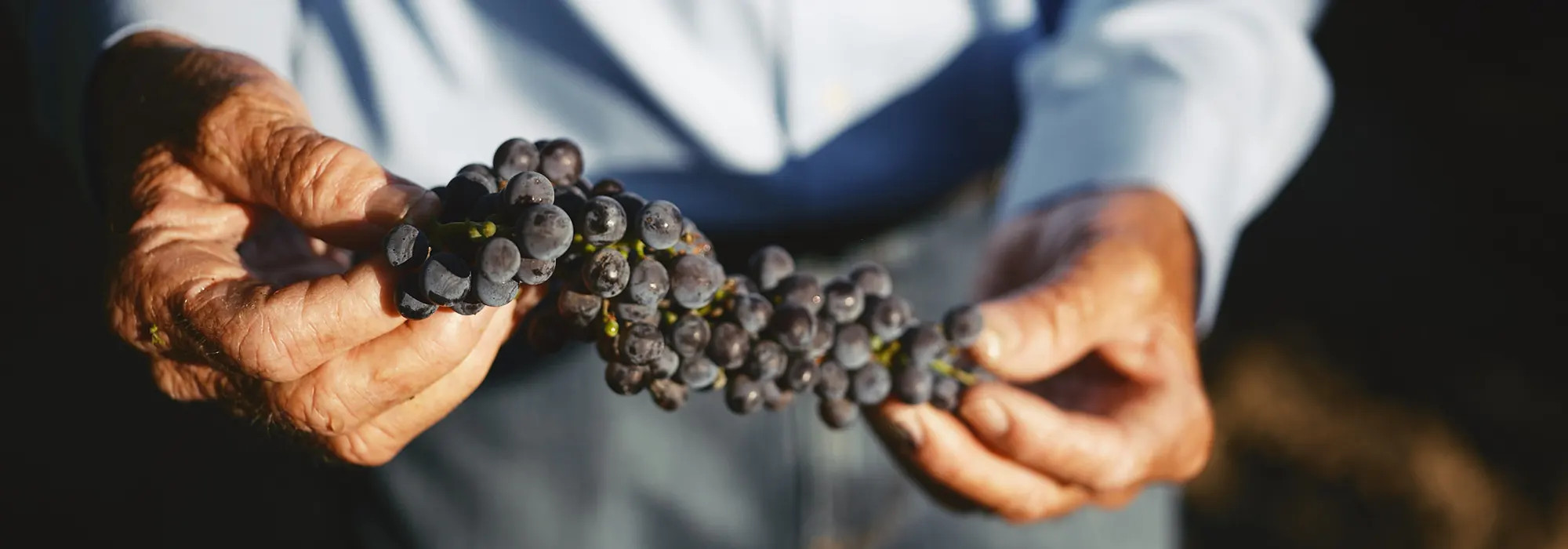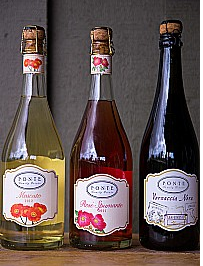Pop! Goes the Bottle: Your Temecula Valley Sparkling Wine Guide To Ring in the New Year

Is there anything better than the sound of a bottle of sparkling wine popping during the holidays? Or any time, really? While we’re big believers in popping a bottle of bubbly any time that feels right, whether ‘tis the season’ or not, there is something particularly special about uncorking some fizz as we get ready to close out 2021… and fully prepare ourselves for what 2022 holds. Gulp.
Fortunately, Temecula Valley is home to some truly exceptional sparkling wines made from traditional sparkling wine grapes like Pinot Noir and Chardonnay, as well as some totally unique varieties like Shiraz and Pinotage. Before we dig into some of our favorite selections for the holidays and ringing in the new year, we thought it might be helpful to review some of the most common types of sparkling wines and how those delicate bubbles make it into our glass.
Méthode Traditionnelle
Also known as traditional method, or “Méthode Champenoise” – named for the region for this type of wine – this is the most painstaking, time-consuming way to produce bubbles.
The winemaker produces a still, dry wine with high acidity, bottles it, and then adds a mixture of more yeast and sugar to each bottle, sealing it up with a crown cap. The yeast begins to ferment the sugar again, increasing the alcohol level slightly and releasing carbon dioxide. Since the CO2 has nowhere to go, it goes back into the wine in what is called the “secondary fermentation,” giving the wine its sparkles.
What makes wines produced in this way so special is the time it spends on its “lees” – the little yeast cells that die and float to the bottom during the secondary fermentation. Some wines spend a small amount of time on them, while others age for years, giving traditional method sparkling wines greater complexity, as well as those unmistakable and delicious toasty, brioche-like aromas, and allowing the wine to age for a long time.
After the specified aging period, the neck of the bottle is submerged in an ice bath which freezes the lees sediments in the neck of the bottle. When the crown cap is removed, the frozen sediment then pops out. Finally, the dosage – the winery’s signature mix of wine and, in some cases, sugar – is added to top the bottles up and determine their sweetness level, and the bottles are corked and caged and ready for our New Year’s celebrations.
Tank Method
Also known as Charmat method or Cuvée Close, these wines go through a similar, but far simpler process than the traditional method of production. Essentially the base wine stays in a large tank, to which a mix of sugar and yeast is added. The tank is sealed so that the secondary fermentation occurs on a much larger scale rather than in individual bottles. The wines are then filtered, the dosage is added, and they are bottled for consumption.
Generally speaking, these wines are intended for more immediate consumption. They are simple and fruit-driven, and absolutely perfect for an everyday sipper or an apéritif before the big holiday meal.
Asti Method
This method is used to produce the sweet, low alcohol sparkling wines like Moscato d’Asti found in Northern Italy. The aromatic Moscato grapes are pressed and the unfermented juice is chilled until the winemaker is ready to make the batch so the wine is as fresh as possible when it is released.
When it’s time, the must is warmed so that fermentation can begin. At first, the tank isn’t sealed, so the CO2 can escape. Partway through this alcoholic fermentation, the tank is sealed up to trap the carbonation. This whole process is cut short by chilling the wine once again so that some of the sugars remain in the wine, leaving it sweet and slightly sparkling. The wine is then filtered and bottled and ready for consumption.
There are of course other ways of producing sparkling wines, such as the transfer method (similar to the traditional method, but taking place on a large scale in tank), the “Ancestral Method” (used to make the funky, all-natural “pet-nat” that is the darling of many somms and wine geeks), and the simple method of just injecting carbonation to a still wine (new use for your SodaStream, anyone?). However, the methods we have outlined are the most common, and the ones you are most likely to find on your table this season.
A Few of Our favorite Temecula Valley Sparklers:
Here are a few to try as you close out this year and toast new beginnings and the promise of a fresh new year in Temecula Valley and beyond.
Carter Estate Winery 2015 Cuvée Prestige, $75 – Gorgeously complex with layers of baked apple, pear, and lemon curd, rounded out with rich notes of brioche and toasted hazelnut, and lifted by bright acidity. This is definitely a special occasion sparkler, produced in the traditional method with nearly six years on the lees.
Thornton Winery Brut NV, $54 – Produced in the traditional method from a blend of classic Champagne grapes Chardonnay and Pinot Noir, this is a crisp, clean sparkler with juicy apple, pear, and tropical aromas, and a toasty, creamy finish.
Bottaia 2020 Rosé Spumante, $45 – Strawberry, crushed raspberry, melon, and lime zest burst from the glass with this baby-pink-hued sparkling rosé. Produced from a mind-bending blend of Italian grapes Fiano, Pecorino, and Montepulciano, this is not only a fantastic, party-pleasing holiday party bubbly, but also a delicious sipper year-round.
South Coast Winery Ruby Cuvée Sparkling Syrah NV, $24 – Few wines are more festive than this crimson-colored red sparkling wine, bursting with juicy, red berry fruit. Break into that box of holiday chocolates that your neighbor dropped off, and sip this alongside them for the perfect, indulgent treat.
Oak Mountain Winery Brut Sparkling, Temecula Valley, $27 – This is such a fun sparkling wine to sip with a spread of New Year’s Eve appetizers, and while getting ready to count down to midnight. Made from the offbeat Rhône Valley grape Roussanne, it’s got plenty of fresh fruit on the palate, with bright, mouthwatering acidity, and a clean, easy-drinking finish.
Happy New Year from Temecula Valley Southern California Wine Country! See you in 2022!












